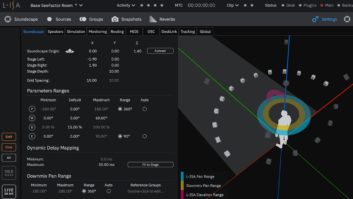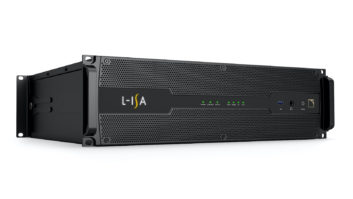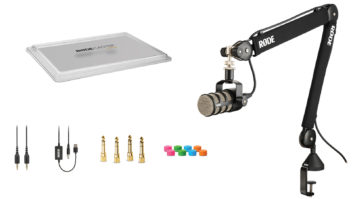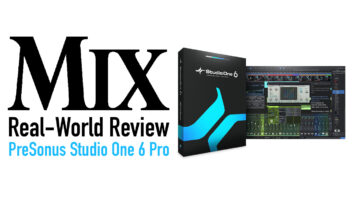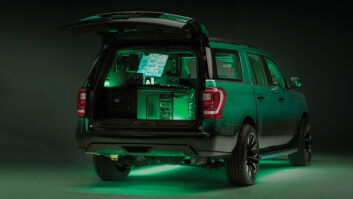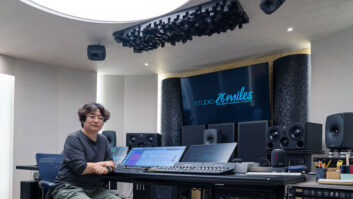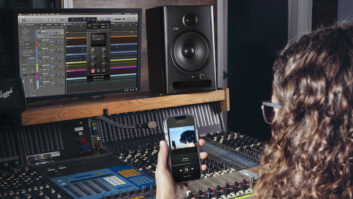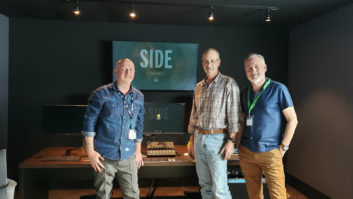by Steve Harvey.

The last couple of years have been rough on recording studios, with the recession coming along right in the middle of a downward trend in record sales. Happily, some studios are reporting a recent improvement in their prospects, as an increasing number of independently financed projects seek out facilities for their acoustic environments and classic analog equipment.
Jim Zumpano, owner of Atlanta’s ZAC Studios, reports that the last 12 months were challenging for his 10-year-old facility, but things are looking up. “The climate is definitely stormy. I thought I was going to die last summer. It just tanked in ’08, and I’m still recovering. But when I look back one year, it’s definitely better now,” he says.
Craig Hubler, longtime studio manager for Hollywood’s Sunset Sound and Sound Factory facilities, also sees encouraging signs. “It looks like a fairly busy summer, surprisingly. I just read that concert ticket sales are way down this year and a lot of concerts are getting cancelled. I think it’s encouraging artists to go back into the studio to record. That’s a hopeful sign for studios if that continues.”
The days of extended studio lockouts are long gone, of course, now that so much editing and overdub work can be easily accomplished elsewhere. But Hubler observes that long sessions are not unknown. “We’ve had some real campouts this year with a number of artists, as long as three months at a stretch. At other times we’ve had people come in and bang out 10 or 11 rhythm tracks in two or three days, and then they’re out of here.”
“I’m happy to report that business is very good,” says Kirk Imamura, president of Avatar Studios in New York. “For whatever reason, we’ve done a lot of jazz big bands this year.” Avatar’s rooms are highly revered for film, TV and Broadway work, in addition to album projects. But the trend seems to be toward independent artists, and shorter sessions, says Imamura. “It seems like artists are taking matters into their own hands and are coming up with their own funding, wherever that may be from. This has been a trend for four or five years.”
He continues, “There are a lot of short sessions and one-time sessions, but we also get our share of long-term sessions. But the shorter ones do fill up time in between.”
Zumpano has observed a similar trend: “Up until last week I hadn’t booked a label in here since probably last October.” He no longer accepts major label purchase orders or bills anybody. “There’s no waiting any more,” he says. “I’m dealing a lot with credit cards. In Atlanta there are a lot of local production companies that I have relationships with, and I’ll accept their checks, but it’s at session time or immediately after. That’s the biggest thing that I’ve had to do to survive.”
Zumpano agrees that sessions are typically shorter. “I haven’t had very many long stays, but they’ve become more frequent. Last year it was like a ghost town. But starting in January, I had one songwriter who came back that has built up from one or two days a week to almost 20 days a month.” Although he’s discounting rates for longer stays, he notes, “For a studio, the lower rate is absolutely positive if you can bill every day.”
Perhaps because of Sunset Sound’s reputation and its involvement in some milestone albums over its 40-plus years in operation, Hubler says he has no problem getting paid by the labels: “Sometimes they turn it around to us in less than a week.”
The ratio of major label to independent projects is about 70/30, he continues. Increasingly, he says, “We’re billing the artists’ accounting firms instead of the record labels.”
Hubler has largely been able to maintain his rates: “We’re still getting close to our normal rates. We have a small range that we operate in, and we’re pretty much in that range.”
Despite the proliferation of project studios, artists still see value in large tracking spaces and venerable analog equipment. “People want to work on an analog console or with a nice vintage microphone or other vintage gear. They don’t want to use a plug-in,” says Imamura, adding, “We’re always hoping that people will ask for a tape machine. Once in a while we do get that kind of a request.”
Classic rooms and gear are certainly a major draw, Hubler agrees: “It is a factor with some of the bands coming in, because the Stones or whoever were here.”
Indeed, the recent reissue of The Rolling Stones’ Exile on Main Street has even increased traffic outside the studio, he says: “I’ve noticed we’ve been getting a lot of tourists out on the street taking pictures of our logo this last month.”
